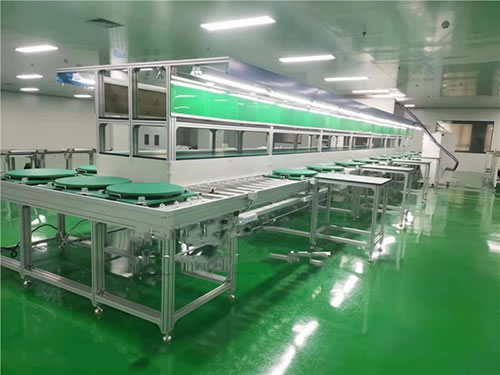Gold Mining Technology Upgrade: Brunei Hard Material Crushing Equipment Adopts Lithium Battery Modules

In the ever-evolving landscape of gold mining, technological advancements have been the cornerstone of increased efficiency and profitability. A recent development in this sector comes from Brunei, where hard material crushing equipment has taken a significant step forward by incorporating lithium battery modules. This innovative integration is set to revolutionize the way gold is extracted from the earth, offering a more sustainable and cost-effective approach to mining operations.
The traditional methods of gold extraction involve heavy machinery that relies on diesel fuel for power. These machines, while effective, are known for their high fuel consumption and substantial carbon footprint. The shift towards lithium battery modules represents a paradigm change, as it brings with it several advantages that are poised to transform the mining industry.
Lithium batteries, known for their high energy density and long lifespan, provide a cleaner and more reliable power source. Unlike their diesel counterparts, these batteries do not emit harmful pollutants during operation, making them an environmentally friendly option. Moreover, they offer quieter performance, which can significantly reduce noise pollution in mining sites located near residential areas or sensitive ecosystems.
Another key benefit of using lithium battery modules is their ability to store energy efficiently. This feature allows mining equipment to operate independently from the grid, particularly in remote locations where access to electricity is limited. By being self-sufficient, mining operations can continue uninterrupted, ensuring consistent production rates and reducing downtime.

Furthermore, the use of lithium batteries opens up opportunities for energy recovery. When the crushing equipment slows down or stops, the kinetic energy generated can be captured and stored within the battery modules for later use. This recycling of energy not only enhances the overall efficiency of the system but also extends the lifespan of the batteries themselves.
From an economic standpoint, while the initial investment in lithium battery technology may be higher than conventional systems, the long-term savings are compelling. Lower operating costs due to reduced fuel expenses and maintenance fees, coupled with increased productivity resulting from less downtime, make a strong case for the adoption of such technology.
As Brunei's gold mining operations embrace this cutting-edge technology, they set an example for other countries and industries looking to modernize and streamline their processes. The adoption of lithium battery modules in hard material crushing equipment marks a significant milestone in the pursuit of sustainable mining practices and highlights the potential for renewable energy sources to transform traditional industries.
In conclusion, the integration of lithium battery modules into Brunei's gold mining sector is a testament to the country's commitment to innovation and sustainability. As these new technologies continue to mature and become more widespread, they will undoubtedly play a crucial role in shaping the future of gold mining worldwide.